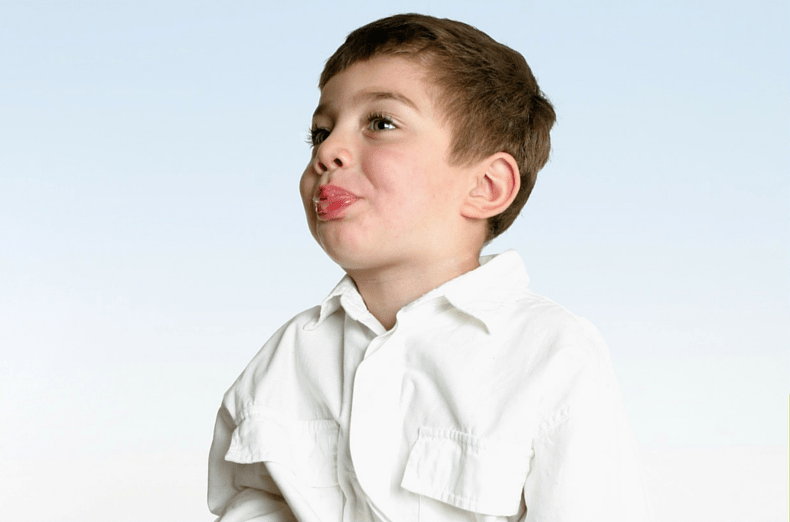Drooling is a normal phase of infancy and toddlerhood. If you notice your child is drooling more than usual, you have probably also noticed this frequently coincides with teething.
Past the teething stage, some children persist in drooling. If your child is drooling, you may notice an open mouthed resting posture, or drool pooling on the chin or the play space where your child is sitting. In some cases, you may notice a rash or irritation on their chin due to due to the drool. If you notice these signs, and wonder if your child should still be drooling, you may want to discuss this with your Primary Care Provider and a Speech Language Pathologist. As Speech and Language Pathologists, we are specifically trained to treat children in feeding and swallowing issues, and can provide treatment, resources, and support on drooling.
Here are some things to look for if you notice excessive drooling in your child:
– Is your child aware saliva is coming out of his/her mouth? Does modeling wet/dry and prompts to “wipe chin” seem to help?
– Do reminders to swallow more often seem to help?
– How is your child’s posture? Is his/her head down, encouraging the saliva to fall out of his/her mouth?
– Does your child breathe with an open mouth? Take note of your child’s mouth during resting posture. This means noticing the tongue, cheeks and lips when your child is “at rest” (in other words, not talking), such as when playing quietly.
As you gather information, remember many babies and young toddlers drool. After all, drool serves important functions (such as with eating), and is produced in the mouth 24/7. The process of changing this pattern will take time, reinforcement, and lots of positive support. Support professionals (like Speech Language Pathologists) can be an important part of this process.
If you’d like more information on this topic, I highly recommend the book How to Stop Drooling by Pam Marshalla. This book is a short and easy read, and contains a wealth of information on this topic.
You can find the book here (Amazon affiliate link):
How to Stop Drooling by Pam Marshalla
If you live in the Rogue Valley and are interested in consultation on this topic, please visit my contact page. My speech therapy clinic is located in in Ashland, Oregon and serves children with a variety of speech and language needs.

